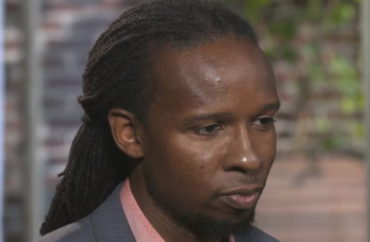
The Columbia professor takes aim at African-American studies
John McWhorter is a professor at Columbia. He’s an accomplished linguist, a public intellectual, and African-American.
Some of his critics call him a conservative, but McWhorter denies this. He called himself a “cranky liberal Democrat” and insisted that he opposed George W. Bush and the war on drugs, supported Barack Obama and gay marriage, and defends black American English as a genuine dialect.
He is also, of late, the scourge of woke activists in the academy.
In a recent Substack newsletter that was ostensibly about asking McWhorter’s many supporters not to taunt Ibram X. Kendi, professor at Boston University and author of “How to Be an Antiracist,” for refusing to debate him, McWhorter wrote:
I would especially like people to stop lobbing this charge at Kendi, because it not only makes little sense, but is kind of cruel.
Back in 2000 in my [book] “Losing the Race,” I wrote of seeing a young black graduate student of African-American Studies at a conference whose training did not seem to be exposing him to much beyond a certain Racism-Is-Everywhere bubble. I wrote that I wouldn’t be surprised to see him at a conference ten years later bristling at being asked real questions.
I never did happen to encounter this particular guy. But in a way, I have – in the form of Kendi.
McWhorter next explained what he meant by that, and in the process took dead aim at African-American studies as they exist in the academy today:
The purpose of African-American Studies departments is officially to explore blackness. However, too often, the reality is less exploration than mission: to identify the operations of racism… This mission is compact. It isn’t exactly hard to find and describe racism in the past when it was overt and unquestioned. Plus, under the popular idea that any disparity between whites and blacks today is because of “racism” (termed systemic or institutional), it’s easy to find it in the present as well.
This means that someone trained under these auspices is never faced with real challenges. No advisor, faculty member or fellow grad student will ask them “Is that really racism?”
Someone trained in this context never encounters actual challenge to their points. You defend no theorem. You present no interpretation subject to alternate approaches – at least, any that a polite person would dare present to you.
McWhorter then turned that criticism back to Kendi’s difficulties with handling debate, suggesting that Kendi’s extensive experience in African-American studies departments has stunted his intellectual growth:
This kind of training is why Kendi’s response to criticism is irritation. “How can anybody not agree with my scholarship?”, he all but says straight out…He is irritated at real questions because he has had no experience with actual academic give and take.
He likes referring to his work as “my scholarship,” for example, apparently thinking of “scholarship” as unquestionable: you just gather and present facts and you have achieved “scholarship” immune to question. Naturally, then, he assumes that criticism can only come from someone who just wants to give him trouble…[H]e complains that his critics are dissing views he never expressed – genuinely unaware that clarification is a major part of defending one’s ideas (and often altering them). He openly says he won’t debate Coleman Hughes because it would entail denying that he meant this or that – genuinely unaware that this is much of what debate consists of.
McWhorter also charged that there that there is basically no rigor to the academic things that Kendi has written:
[H]is record of refereed journal articles is thin — there are fewer than one would expect at his stage, they tend to be on the short side, they are more about describing than analyzing, and they are almost all in venues easy to get things into. He hasn’t had to sweat and strain to get his articles into print in tough-to-crack journals by polishing his argumentational skills. His dissertation, meanwhile, was not an analysis but a “narrative history.” He gathered facts and told a story.
And because of all this, McWhorter said, a real, in-person debate would be a waste of everyone’s time.
“I can’t work with that,” McWhorter wrote. “Because he has never had to actually defend himself, he would have a hard time getting past just accusing me of making things up or being a racist. I would make quite sure it was clear neither of those things held the slightest water, upon which what I would get for my trouble was looking like a bully with 15 years on him. All he could see in me is an aging Uncle Tom running him down.”
Those are explosive charges by McWhorter against African-American studies departments. Are they true? In my next column, I will look at a recent case that most definitely points to yes.
MORE: What has Professor Ibram Kendi accomplished?
IMAGE: YouTubescreenshot






Please join the conversation about our stories on Facebook, Twitter, Instagram, Reddit, MeWe, Rumble, Gab, Minds and Gettr.